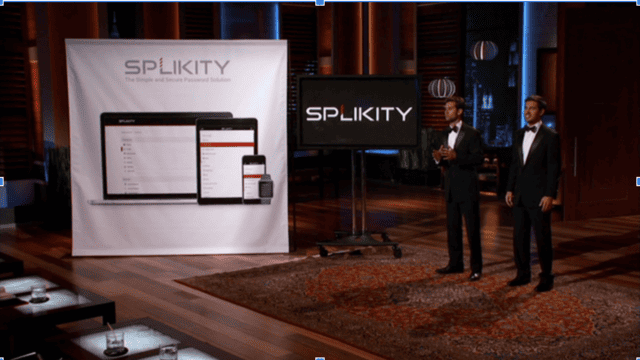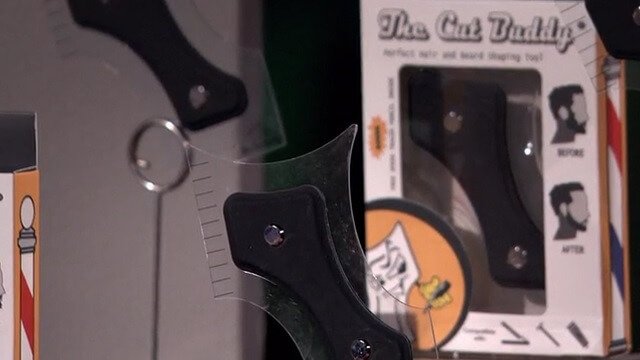Forget the fairy tales. Most Shark Tank pitches don’t end in Lamborghini selfies and seven-figure exits. Plenty walk on set with dreams—and leave with bruised egos and stiff competition waiting just outside the studio doors.
Take Splikity. On paper, it had that solves a headache everyone hates premise. But did it actually cut it once the lights went off? Let’s lay out what went down—no spin, just the raw story—because this one’s a masterclass on what it really takes to make waves in a red-hot market.
Contents
ToggleThe Splikity Story
Splikity aimed right for a universal pain point—passwords. Too many sites, too many logins, and we’ve all hit that forgot password link more than we care to admit. Brothers Chad and Doug Clark, tired of juggling logins, decided there had to be a smarter way. So, they built an app to manage, store, and sync passwords securely across devices.
But here’s the no-nonsense truth: the password manager niche wasn’t empty. LastPass and 1Password were already sprinting far ahead. So, what gave Splikity the guts to jump in? Let’s get into it.
Meet the Founders
Chad and Doug Clark weren’t Silicon Valley insiders. These brothers grew up in Arizona and maxed out credit cards, poured every penny into their idea, and even moved back in with their parents to keep Splikity alive. No CS degrees, no hacker credentials. Just grit, a ton of ambition, and a belief that regular folks wanted simple, stress-free security.
I’ve seen this kind of founder hustle before—no connections, just burning through savings, betting everything on their one shot. Sometimes it’s inspiring. Sometimes it’s a recipe for disaster, especially in tech, where people care as much about your background as your product.

The Shark Tank Pitch – What Happened in the Tank
Season 7, Episode 2. Right out of the gate, Chad and Doug asked for $200,000 in exchange for 20% of Splikity, pegging their company at a cool $1 million. Their pitch? Passwords stress everyone out, Splikity makes it easy and secure, and they had just grossed $55,000 in royalties from a licensing deal—with another player in the security business.
But the nerves showed. You could feel the sharks circling. Mark Cuban locked on one detail fast—the brothers had no deep tech or cybersecurity background. Cuban called them ripe for a hacking scare; he was out. Lori Greiner saw some promise (women-friendly design, she said) but needed more to bite. Barbara Corcoran didn’t get what made it special. Robert Herjavec, the guy with actual cybersecurity chops, dug in—the special sauce just wasn’t obvious enough.
Finally, Kevin O’Leary sniffed a deal. He offered $200,000, but as venture debt (you pay him back from your sales, then he gets a small piece of equity). He even sweetened it later—$300,000 for a touch more equity. But the Clarks, staring down O’Leary’s tough terms, said no.
Walked in hopeful, walked out with nothing but feedback. Tough break, but that’s the room.
Splikity’s Net Worth – What’s the Real Value?
SharkWorth and other trackers peg their post-show valuation where it started—around $1 million—but let’s be real. Without a deal, and in a crowded, tech-heavy market, paper valuations fade fast. Yes, they had $55,000 in licensing revenue one month, but that was a spike, not a trend. True net worth isn’t what you claim on stage; it’s what you can defend year after year.
After the cameras, Splikity didn’t surge. No press wave, no viral moment, no tech awards. The market kept moving, and unless you keep landing deals, recurring revenue, and sticky users, your valuation doesn’t mean squat. Word was, Splikity struggled to scale, lost visibility, and didn’t snag a second wind.
Shark Reactions – Why No One Bit
Here’s the breakdown that every founder should memorize:
- Mark Cuban: Out within minutes—he simply didn’t trust non-tech founders to hold the line on cybersecurity. If you’re targeting hackers, you better hire people who grew up breaking things online.
- Lori Greiner: Saw potential in the female market that’s often ignored by tech bros, but didn’t sense a game-changer. If she loved what she saw, she’d have written a check.
- Barbara Corcoran: Couldn’t spot any feature or angle to set Splikity apart. Killed by meh branding and lack of focus.
- Robert Herjavec: This was telling. The only Shark with deep cybersecurity experience, and he walked because Splikity had no unique edge—no it factor.
- Kevin O’Leary: Offered venture debt, not equity—a sign he wasn’t all-in. O’Leary likes a quick payoff with limited risk, and he didn’t see this as home run material.
Sometimes, it’s about gut; sometimes, it’s about spreadsheets. In Splikity’s case, nobody felt both.

What Set Splikity Apart (Or Didn’t)?
I’ll shoot straight—if you’re jumping into a market with billion-dollar beasts, you better bring either genius tech, cult-like users, or a killer story. Splikity was clean, simple, and honestly… kind of generic. They didn’t have open-source transparency (like Bitwarden), enterprise hooks, or viral social proof. Even the UX (user experience) wasn’t so jaw-dropping that it broke through the noise.
The only real edge? The price was competitive, and they licensed tech early—but that’s not enough long-term if you don’t quickly own a niche or build a raving fanbase.
Life After Shark Tank – Did Splikity Survive?
This is where most Shark Tank recaps skip to glittery best-case scenarios. But if you trust the numbers, chatter inside SharkWorth, and business rumor mills, Splikity didn’t break through. No big acquisitions. No high-profile partnerships. In fact, try to download Splikity today—good luck. Looks like the Clarks either wound things down or faded into stealth mode.
The blast from TV is real, but it doesn’t last without relentless hustle. The hard truth is Splikity became another app swallowed up by faster, meaner, or savvier rivals. Password managers like LastPass, 1Password, and Dashlane just never stopped stomping on new arrivals.
Lessons for Entrepreneurs
Let’s get practical, because you might be in the trenches right now:
1. Tech is ruthless. If you’re not a coder or a hacker, pull in people who are—early. Sharks (and real investors) can smell a bluff in five seconds.
2. Don’t chase hype—build sticky value. One-off licensing deals feel good on your deck, but they rarely keep the lights on unless they’re renewable and scalable.
3. Unique wins. The password manager market was already a dogfight. Splikity didn’t have a silver bullet or wtf feature. Investors want story and substance, not just me too, but cheaper.
4. Know when debt makes sense. O’Leary’s debt offer was safer for him, not for the founders. Sometimes walking away is smart—if you have a plan B.
5. Spinouts work in other spaces. If this was eyelashes (like Mikki Bey) or snack bars (see RXBAR), maybe a just make it easy approach would fly. In security? No chance.
6. TV fame fades fast. If you’re not ready to scale right after your episode, someone else will eat your lunch.
7. Take expert criticism, don’t dodge it. If Herjavec is calling you out, treat it as a warning before the market does.
Wrap-Up: The Real Impact of a Shark Tank Shot
The reality is, being on Shark Tank is a launchpad—nothing more, nothing less. Splikity got their shot, and the feedback from the experts was ruthless but fair. No deep tech, no wild feature, no diehard brand loyalists—the market was always going to be a steep climb. That’s not shade—it’s a reminder: almost everyone pitching a red-hot trend believes they’re different. The market decides otherwise.
Chad and Doug Clark? They took a classic founder swing—gutsy, all-in, and with the kind of sacrifice most people will never understand. But sacrifice doesn’t sell alone. You need execution, defensibility, or a brand story that makes people root for you and open their wallets. Splikity is what happens when ambition collides with a market that asks for more than just another option.
If you’re thinking about pitching your own tech solution, study this episode as a warning shot. Respect the hustle, but don’t confuse hustle for an unfair advantage. The sharks never do.
If you want more no-frills breakdowns just like this, keep checking SharkWorth. We’ll keep giving you the stories that matter, winners and losers alike.
FAQs
1. Is Splikity still in business?
From the available signs, Splikity no longer seems active. You can’t find a working website or app as of mid-2025.
2. Did the founders regret turning down Kevin O’Leary?
No public regrets have surfaced, but given the business didn’t break out on its own, tough questions remain.
3. How much revenue did Splikity actually make post-show?
After their licensing bump, there’s no public info on big revenue spikes. The company seemed to stall after Shark Tank.
4. What made Splikity different from LastPass or 1Password?
Nothing major—lower price and simplicity, but no big tech edge or unique feature to pull users away.
5. Can you still download or use Splikity today?
Not from any official or reputable source. The product has likely been discontinued.
6. Did any Sharks invest in other password managers later?
No high-profile Shark Tank deals with similar apps have made headlines since Splikity’s pitch.
7. How much is Splikity worth now?
With no presence or active business, Splikity’s worth is essentially zero. Their $1M valuation was never locked in.
8. What are Chad and Doug Clark doing after Shark Tank?
As of now, there’s no big update on the Clarks chasing new startups or public launches. Some entrepreneurs move on quietly after a tough run.
Bottom line: Not every idea—or every founder—lands a deal or builds an empire. That’s reality. Stay sharp, measure twice, and build something no one else can. The rest? It’s Shark Tank luck.










